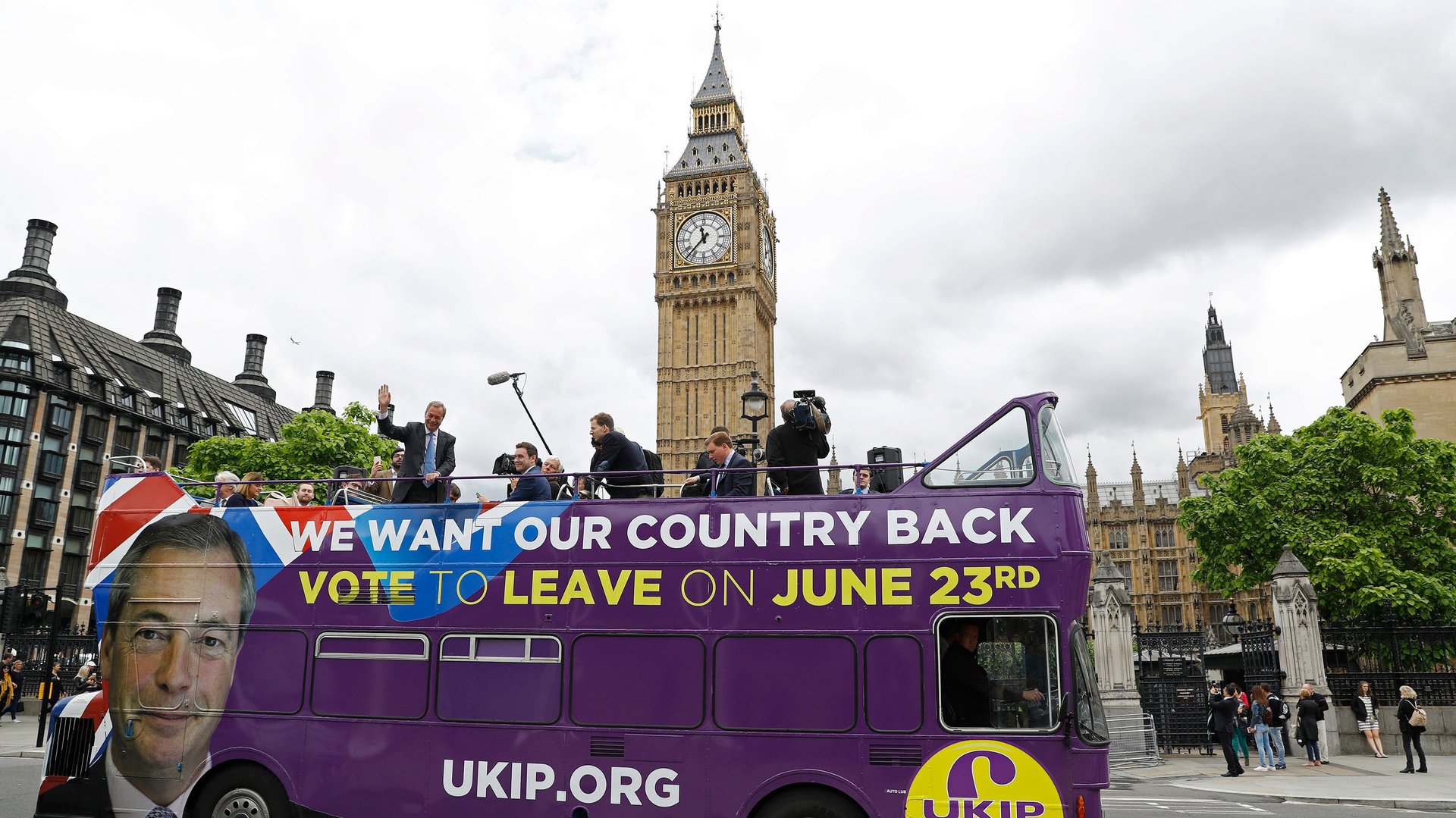A London without immigrants would not be London
Whenever I fly into London’s Heathrow airport, the trip back to my flat takes me across the same slow, snaking, cross-town journey on the Piccadilly line into northeast London. Though the blue line takes me through many of London’s major landmarks and recognizable place names—South Kensington, Covent Garden, King’s Cross—it isn’t until I disembark at Finsbury Park and board the 254 bus towards Hackney that I feel like I’m really home.


Whenever I fly into London’s Heathrow airport, the trip back to my flat takes me across the same slow, snaking, cross-town journey on the Piccadilly line into northeast London. Though the blue line takes me through many of London’s major landmarks and recognizable place names—South Kensington, Covent Garden, King’s Cross—it isn’t until I disembark at Finsbury Park and board the 254 bus towards Hackney that I feel like I’m really home.
With a lower deck full of orthodox Jewish mothers hovering over strollers, Afro-Caribbeans discussing football scores, Turkish and Somali teenagers staring at their smartphones, and Polish builders going from one job to the next across town, the 254 bus is London for me. It’s a simple yet powerful example of the multiplicity and diversity that is so emblematic of my city. We don’t just tout diversity, we are it.
This is the city where, just a few weeks ago, we reveled in the election of the first Muslim mayor of a major Western capital, the son of a bus driver himself. This, despite a conservative opponent who cowardly invoked Sadiq Khan’s fictitious connections to London’s 2005 terrorist bombings just days before the vote. As one Norwegian-born friend of mine posted at the time: “That fear mongering shit don’t work here—because we are Londoners.”
Alas, Londoners aren’t the only ones voting in the so-called Brexit referendum week. (Some polls suggest the capital is in favor of remaining in the European Union by a margin as high as 60%-40%, making it the most pro-Europe region of the UK.) With the brutal murder of pro-Remain Labour MP Jo Cox last week (June 16), we saw the ugly escalation of the Brexit debate reach its tragic apotheosis. All of a sudden, those early, heady days of our progressive mayor’s term seem like several national identities ago. In the interim, this debate has become primarily about hatred and exclusion, rather than democracy and sensible governance. And if on Thursday, this country succumbs to the fantasy that it will be stronger by becoming more closed off, I fear that London will be changed the most.
Walk into any cafe, hotel, or pub in the capital and you’re sure to find EU immigrants behind the till or tending the bar. A report carried out by Oxford University’s Migration Observatory and commissioned by the Financial Times found that “three-quarters of EU citizens working in the UK would not meet current visa requirements for non-EU overseas workers if Britain left the bloc” with as many as 94% of hotel and restaurant workers deemed ineligible.
This, of course, might be precisely the kind of statistic that some Leave voters might use to buttress their reasoning. EU workers take jobs that we need, right? This reasoning assumes two things, however: first, that EU migrants aren’t a net gain to the economy, and second, that London itself has become the cultural, political, and financial capital of the country—and not to mention a major hub of Europe—on the backs of Britons alone.
There is little evidence to support the former. Roughly 2.2 million EU nationals work in the UK, comprising 6.6% of the workforce, according to the FT report. Another report from the London School of Economics and Centre for Economic Performance found that while EU migration has increased and a third of EU migrants live in London, “areas of the UK with large increases in EU immigration did not suffer greater falls in the jobs and pay of UK-born workers.” Indeed, the authors noted that “immigrants consume goods and services and this increased demand helps to create more employment opportunities.” To assume otherwise is “lump of labour fallacy, ” the idea that the number of jobs in an area is fixed and immigrants push other job seekers out.
The latter supposition—that we would be better off without those “foreigners” who come to our country to work hard—is the most baffling to me, however. It suggests some kind of colonial hubristic hangover, the belief that modern Britain owes nothing to the generations of immigrants who have come to the country and its capital throughout history.
Though I have a British passport, I know what it’s like to be an outsider here, to arrive alone and have to figure out a way to earn your keep. I’ve worked in restaurants with Italian, Spanish, and Polish colleagues and I’ve shared addresses with flatmates from more countries than I can keep track of. We can choose to have a future London that celebrates this diversity—and retains the dynamic, modern, and internationally competitive capital city that draws huge employers like banking institutions, start-ups, and manufacturers—or we can try to revert to a time without them. But to be clear, a modern globally competitive London, and by extension Britain, has never existed without immigrants.